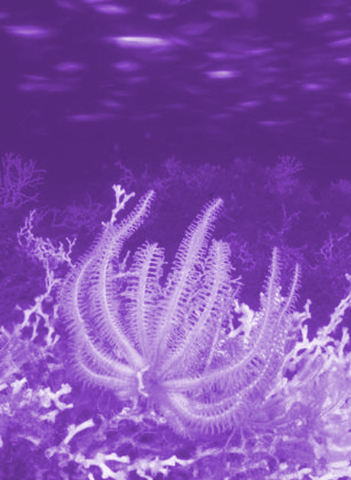Acidic switch turns off fish
 Ocean acidification appears to be making coral reefs less appealing to certain fish species due to the simplification of coral structure.
Ocean acidification appears to be making coral reefs less appealing to certain fish species due to the simplification of coral structure.
A recent study focused on coral reefs in Papua New Guinea, offering new insights into the broader impacts of global warming on marine ecosystems.
Ocean acidification results from increased carbon dioxide levels in seawater, which reduces pH and makes calcium carbonate less available. This compound is essential for corals to build and maintain their skeletons.
The research indicates that while acidification does not necessarily reduce the overall coral cover, it leads to less branched and more simplified coral structures. These simplified structures are less attractive as habitats for some fish species.
Researchers studied two reefs in Upa-Upasina, Papua New Guinea. One reef, located near a volcanic seep, experiences natural acidification due to a steady stream of carbon dioxide. The other reef, situated 500 metres away, remains unaffected by the volcanic gases. This unique setup allowed the team to compare current conditions with future-analogous conditions side by side.
“Aquarium experiments are rather simplistic and cannot adequately mimic the complex species interactions that commonly occur in nature,” said Professor Nagelkerken.
“These reefs presented an incredible opportunity to directly compare current and future-analogous conditions side-by-side, with a full suite of ecological interactions in place.”
The study, published in the Journal of Animal Ecology, observed five damselfish species.
Two species displayed a clear preference for complex, branched structures, while another two species, though not averse to simpler structures, still sought out more complex habitats even as they became scarce.
“Ocean acidification has the potential to reshuffle ecological communities globally, lead to the loss of key habitats and biodiversity, reduce fisheries’ productivity, and have negative physiological impacts on many marine animals and plants,” said Professor Nagelkerken.
“It might also lead to a reduction in populations of various fish species, which could create novel species community structures that might have lower biodiversity and not be as resilient as present-day communities.
“It could also clearly distinguish winner species from loser species. And if this ocean acidification affects fisheries species, some species that recreational and commercial fishers target might become less abundant.”
The findings underscore the potential for ocean acidification to cause significant changes in marine ecosystems, particularly if human-caused carbon emissions continue to rise.
The experts say that the conditions observed in Papua New Guinea could become more widespread, impacting not only tropical reefs like the Great Barrier Reef but also temperate reefs, affecting cold-water reef builders such as oysters, mussels, and calcareous algae.
“If we continue to emit carbon dioxide unabated, at some point in the future we could see such levels of ocean acidification in Australia,” warned Professor Nagelkerken.
“The effects observed in our study would be similar in Australian ecosystems, because many of the coral and fish species that we studied in Papua New Guinea also occur on the Great Barrier Reef. But temperate reefs might also be affected, with ocean acidification having negative effects on cold-water reef builders such as oysters, mussels, and calcareous algae, among others.”







 Print
Print